
This World Cup coverage is made possible through the generous support of Marty and Kathy Hall and their A Hall Mark of Excellence Award. To learn more about A Hall Mark of Excellence Award or to learn how you can support FasterSkier’s coverage please contact info@fasterskier.com.
Four months after the season debut in Ruka, Finland the women lined up at the start line one last time to conclude a season many were skeptical would even reach this point. While there was the occasional bump along the way in the form of venue cancellations or missing nations, the World Cup circuit persevered to end in Engadin, Switzerland (replacing the events cancelled in Oslo, Norway due to COVID travel restrictions). For Sunday’s point-to-point 30 k pursuit start skate race there was more on the line than simply glory for the day with the season distance globe still undecided and third place in the overall rankings close, though perhaps less likely to change.
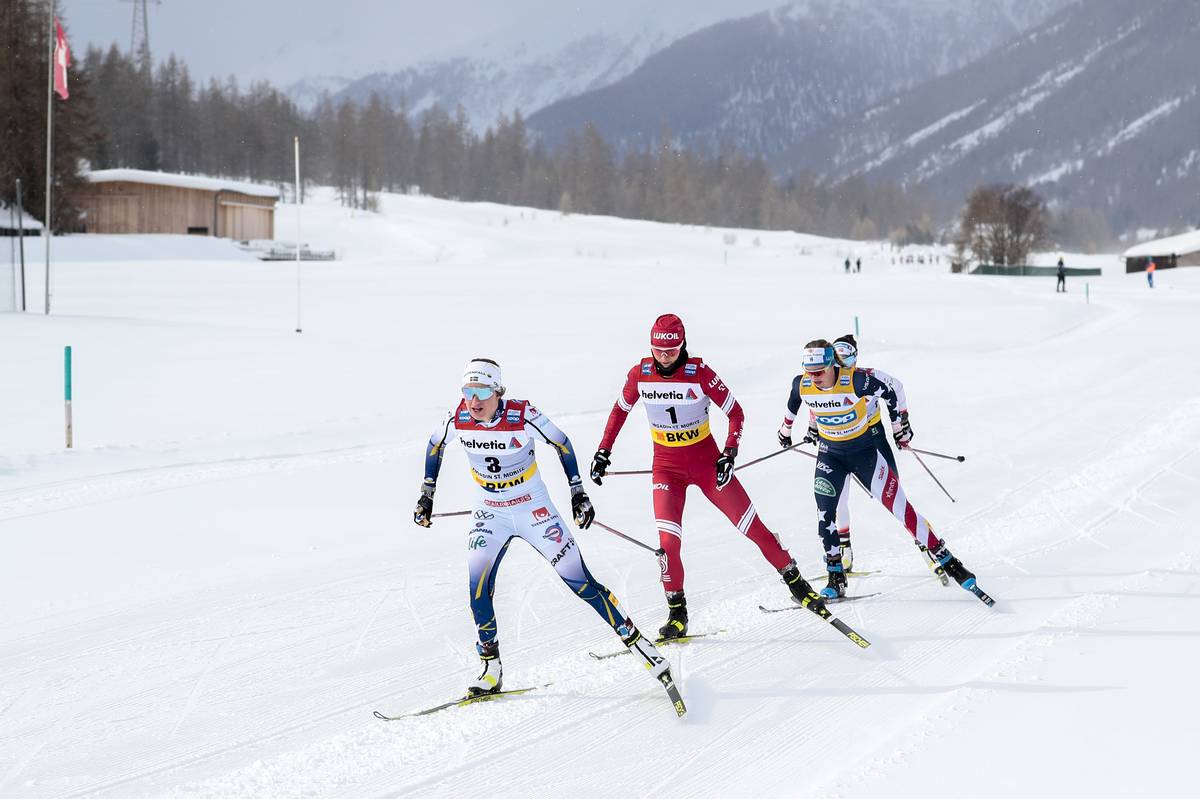
Going into the day, Rosie Brennan of the United States sat in fourth in the overall points with 897 points after losing time and places to Ebba Andersson of Sweden during Saturday’s classic mass start. Andersson began Sunday’s race with 931 points. With the format of Sunday’s event being a pursuit based on Saturday’s finish, Brennan would need to make up 50 seconds to the Swede in order to have a chance.
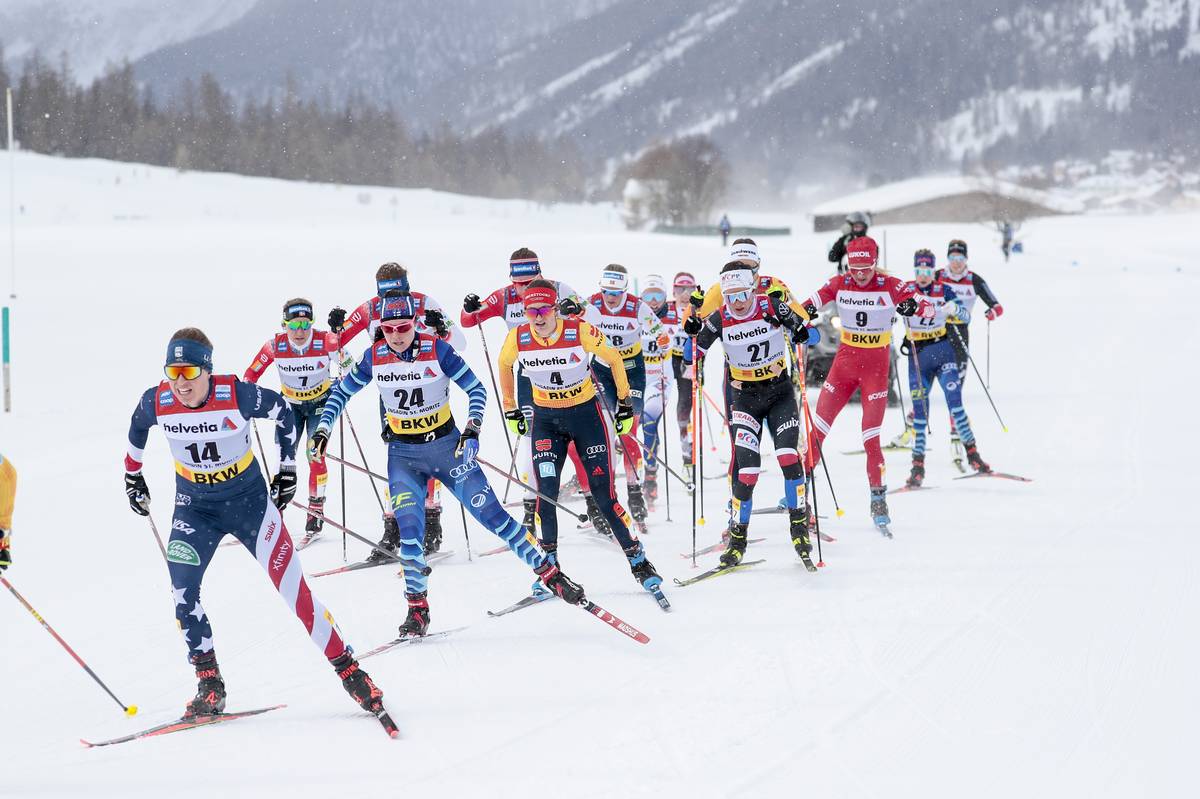
For the distance globe, Jessie Diggins of the United States had the lead entering Sunday’s race with 603 points, just 43 ahead of Andersson. Yulia Stupak of Russia was just one point behind Andersson with 559. With all three of these athletes finishing within 20 seconds in Saturday’s event, they were poised for a good final battle Sunday morning. As previously noted, two of this season’s top distance finishers, Therese Johaug of Norway and Frida Karlsson of Sweden were both absent this weekend due to injury.
In contrast to yesterday’s sun, today’s race took place in blustery winter conditions with cloudy skies and blowing snow. Stupak was first out of the gate with a +7.1 lead over Heidi Weng of Norway and +8.5 to Andersson. Laura Gimmler of Germany, who had a career best finish of fourth place on Saturday, started +16.4 and Diggins was +20.7. This twenty-second margin was breached within a matter of minutes and a lead pack formed with these five skiers.
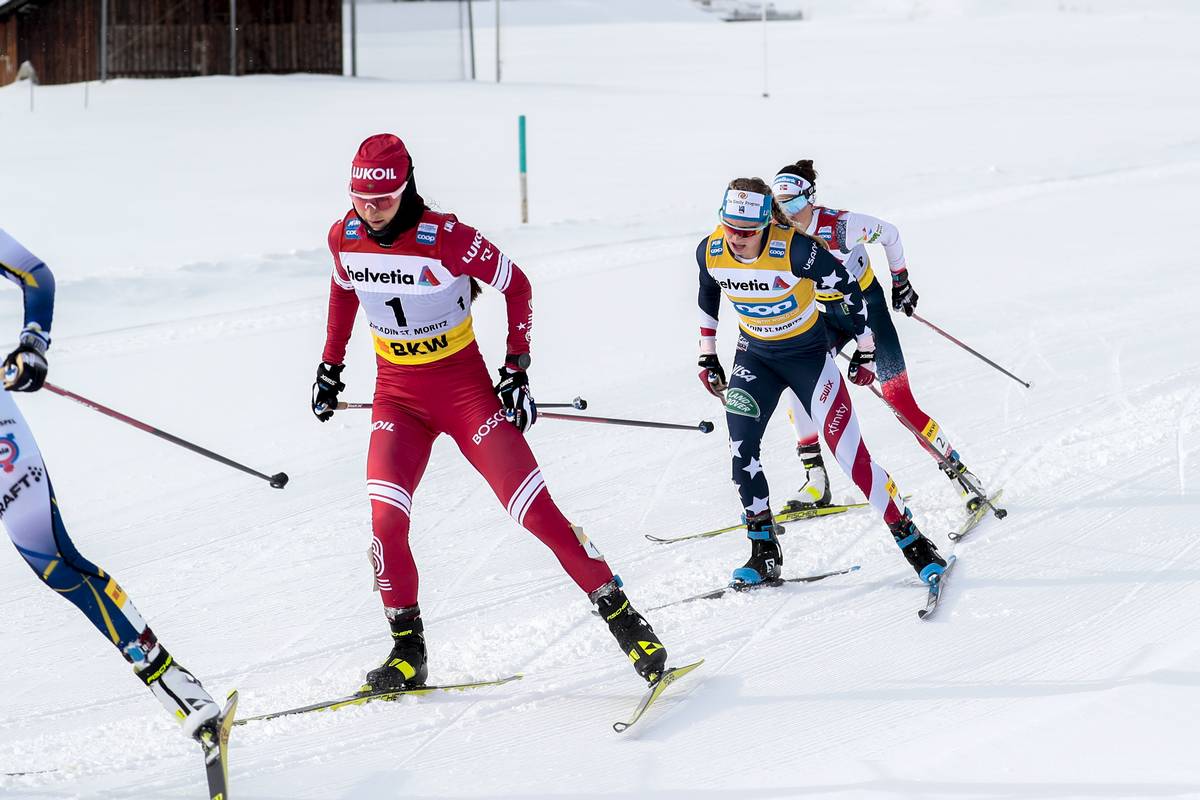
As they made their way up the first significant climb of the course, Gimmler dropped off the pace, whittling the front group down to four. They continued to change leads with Weng and Andersson doing much of the pulling, Diggins taking the occasional turn and Stupak content to sit continuously in the rear. Behind the top four, the first chase pack was coalescing, comprising eight athletes – three Germans, two Norwegians, a Swede, Russian and American. Around the time Gimmler was dropping off to join the chase pack, Helene Marie Fossesholm of Norway made a charge out on her own. With the wintery conditions and long sections of flat course that is more conducive to pack-skiing, her break did not last long. At 31 minutes on the race clock she was once again swallowed by the chasing group.
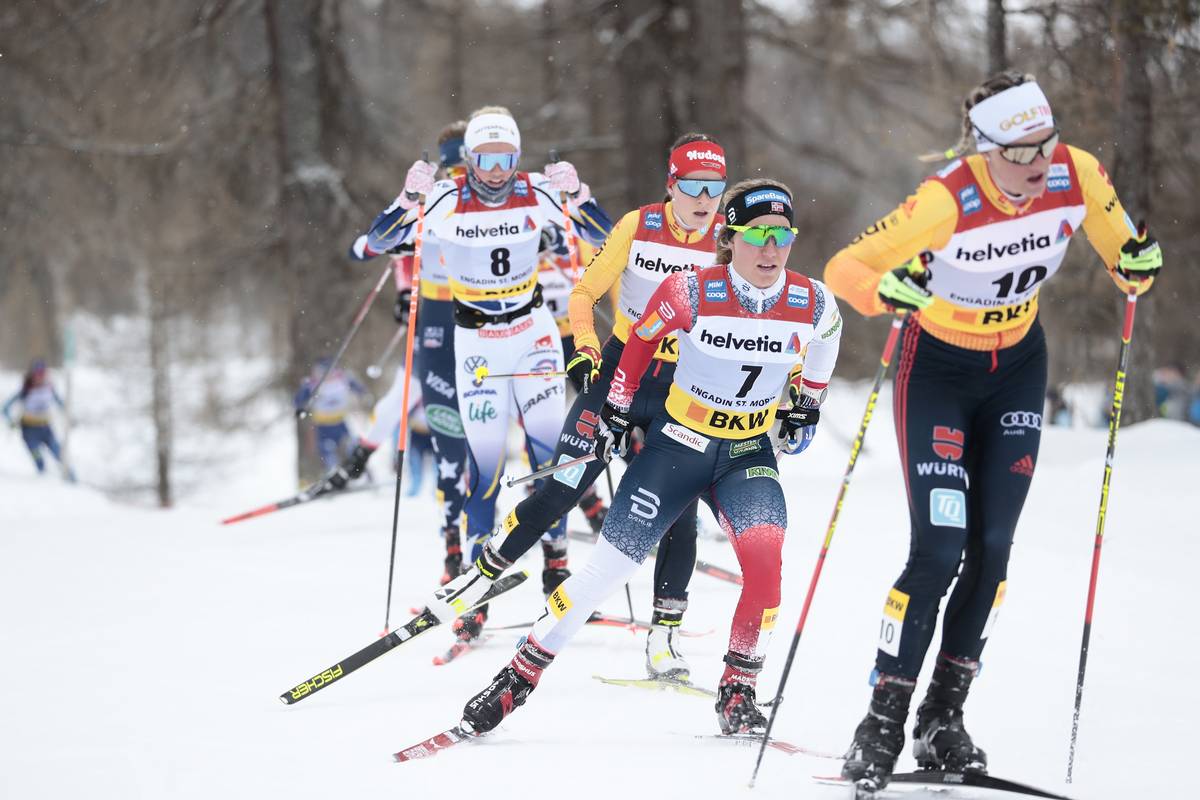
Contrary to a typical World Cup course, with small loops and plenty of coach access, the final event of the year was about self-sufficiency. Many of the athletes chose to wear water belts for feeds and in this environment, a snapped pole would essentially mean the end of your race.
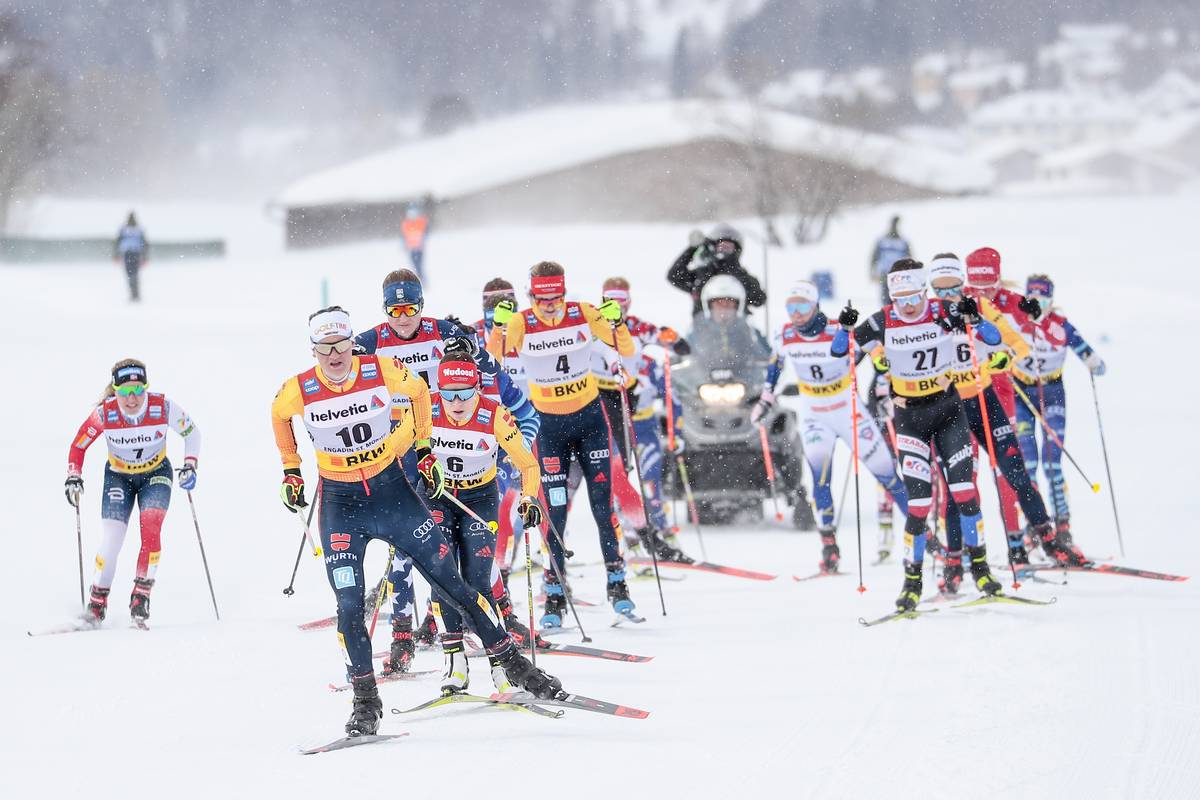
At the fifty-minute mark, the second chase pack merged with the first group of chasers and their ranks doubled. With 10 k remaining, the four athletes up front cycled leads frequently while the gap to the large chase pack behind was up to +1:30. Behind the first chase group, the margin back to the next athlete was over two minutes, with Jonna Sundling of Sweden drifting slightly ahead of the next large pack, some 25 women strong.
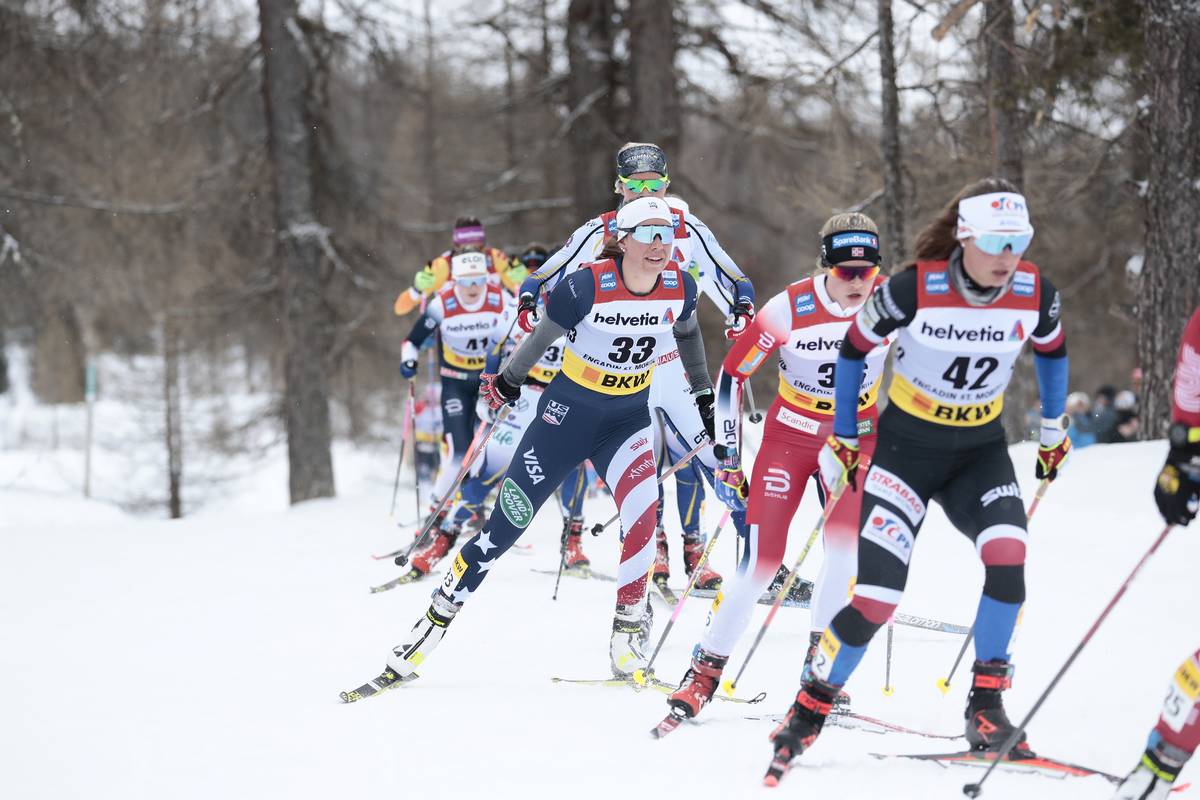
With 5 k to go for the leaders, the sun broke through the clouds and the tempo ramped up. With 2.3 k remaining, Weng made her move, hop skating away up a long, grinding climb. With Weng out front, Andersson made to chase her while Stupak and Diggins dropped back. For the next two kilometers, Weng and Andersson pushed. Andersson seemed to close on the Norwegian but when it came down to the line, it was Weng in first +4.5 seconds ahead of Andersson in a time of 1:28:11.6.
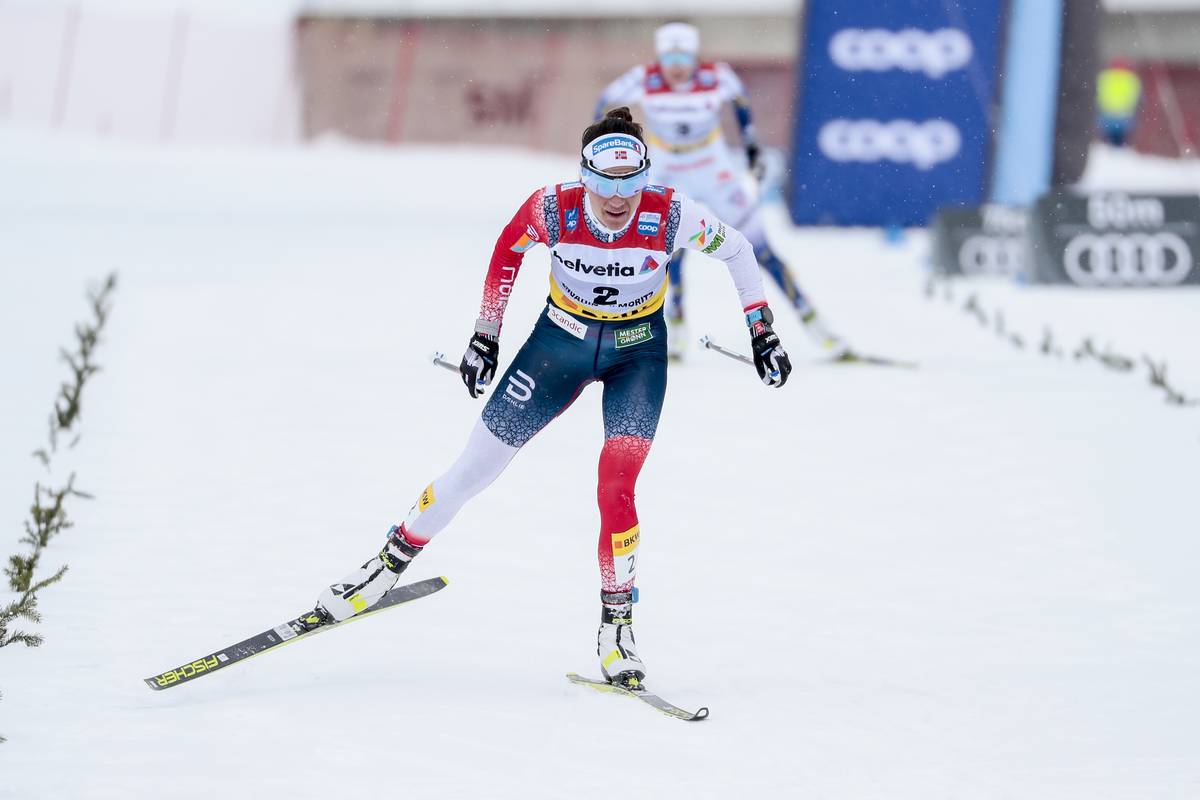
The gap back to Stupak and Diggins widened to some 30 seconds, with Stupak pulling away from Diggins slightly to finish third, +33.7 behind Weng. Diggins finished fourth, +37.3.
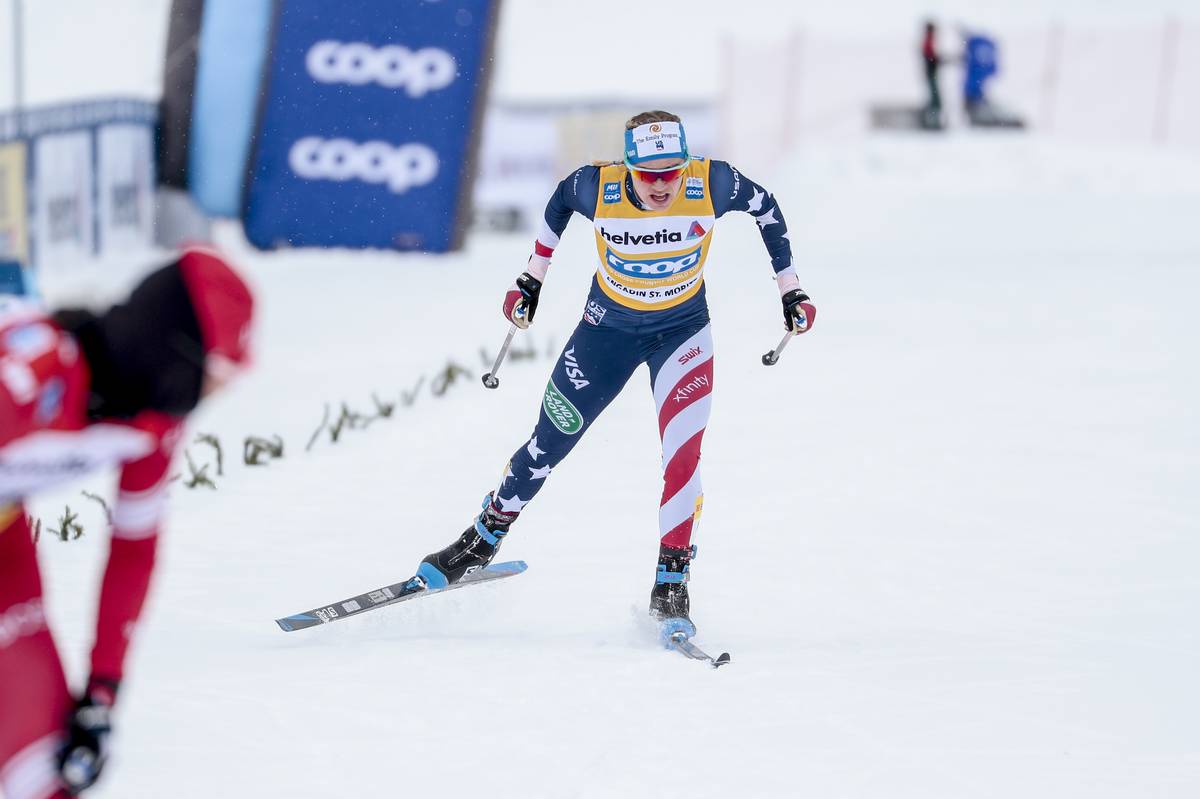
To find the last time Weng topped the World Cup podium one must look all the way back to 2018 when she won the Tour de Ski. The last time she won, excluding Tour de Ski events, was 2016 when she took gold in the 10 k skate mass start in La Clusaz, France. After the race, Weng said, “Oh it was very tough. I tried to get fast in the down hill, but I don’t remember that hill [climb] was so long and it was so steep in the top and when I come down it was a little bit snow. It was very hard. The hill was a friend with me today so that was fantastic.”

Brennan was the next American finisher, coming in 12th place.
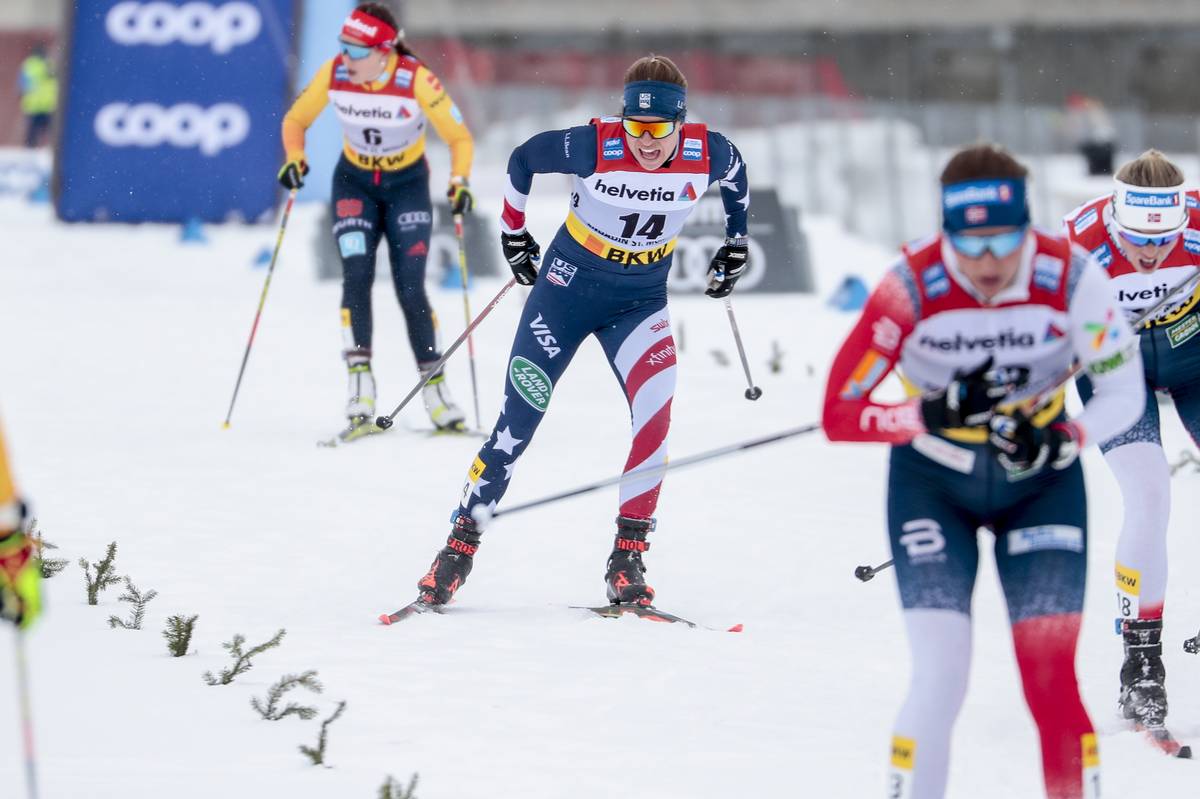
Katharine Ogden stayed steady to finish 33rd again (her position in Saturday’s race as well), +4:42.8 back. Sophia Laukli was 38th, Julia Kern 41st and Hailey Swirbul 53rd, +8:53.5.
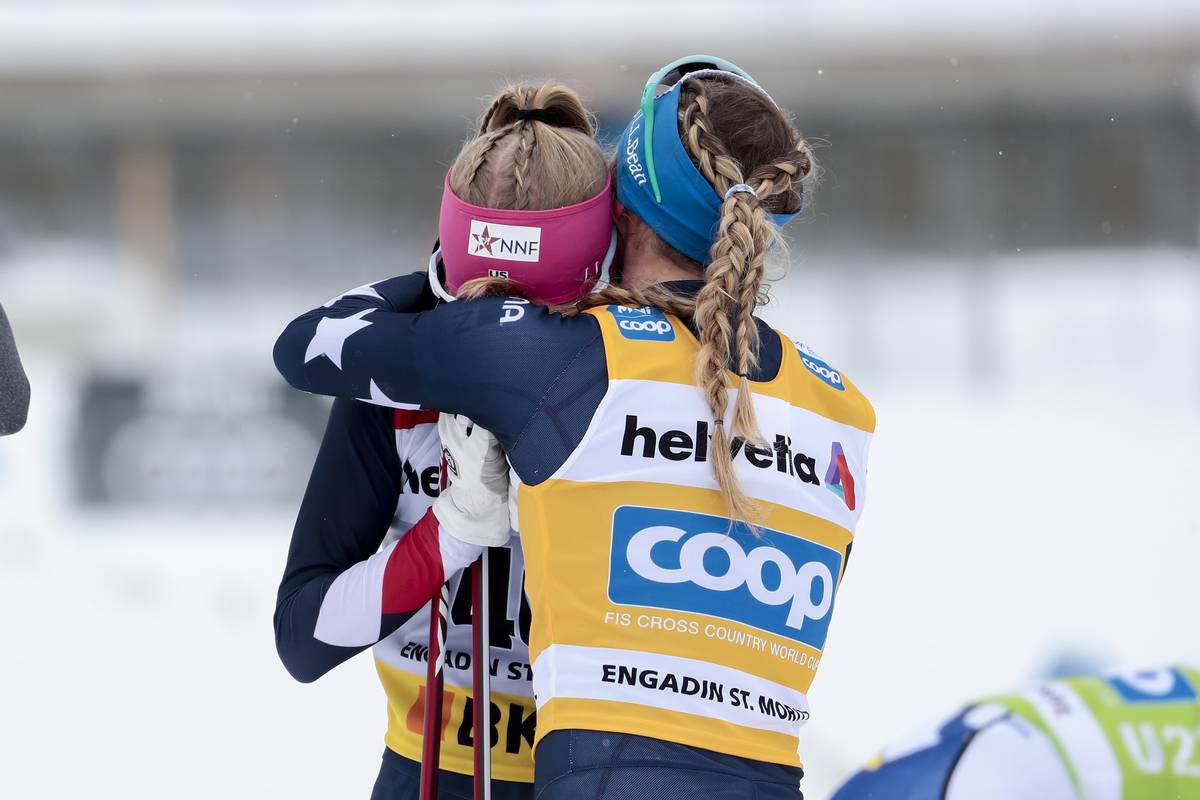
Dahria Beatty led the way for the Canadian women, finishing in 15th, a personal-best distance finish. “Today was awesome. It was so much fun skiing in a big group like that,” said Beatty to Nordiq Canada. “I caught the first chase pack, and it was fun to have so many women to ski with. I finished strong but had nothing left at the end. I can’t think of a better way to finish the season.”
Katharine Stewart-Jones also ended in the top thirty, in 24th position, +4:17.5. “I made a mistake with ski choice yesterday and struggled with my glide so was frustrated with how things went but I knew I was feeling good, so I channeled that energy into today’s race,” said Stewart-Jones to Nordiq Canada. “It was a cool race, definitely different than what we are used to on the World Cup.
“It was flat and slow conditions, so it was a pack race where strategy mattered a lot. I just stuck behind my pack until it started climbing with three kilometres to go, and then I followed (Ragnhild) Haga to the finish.”
Cendrine Browne came in 35th for the Candian squad.
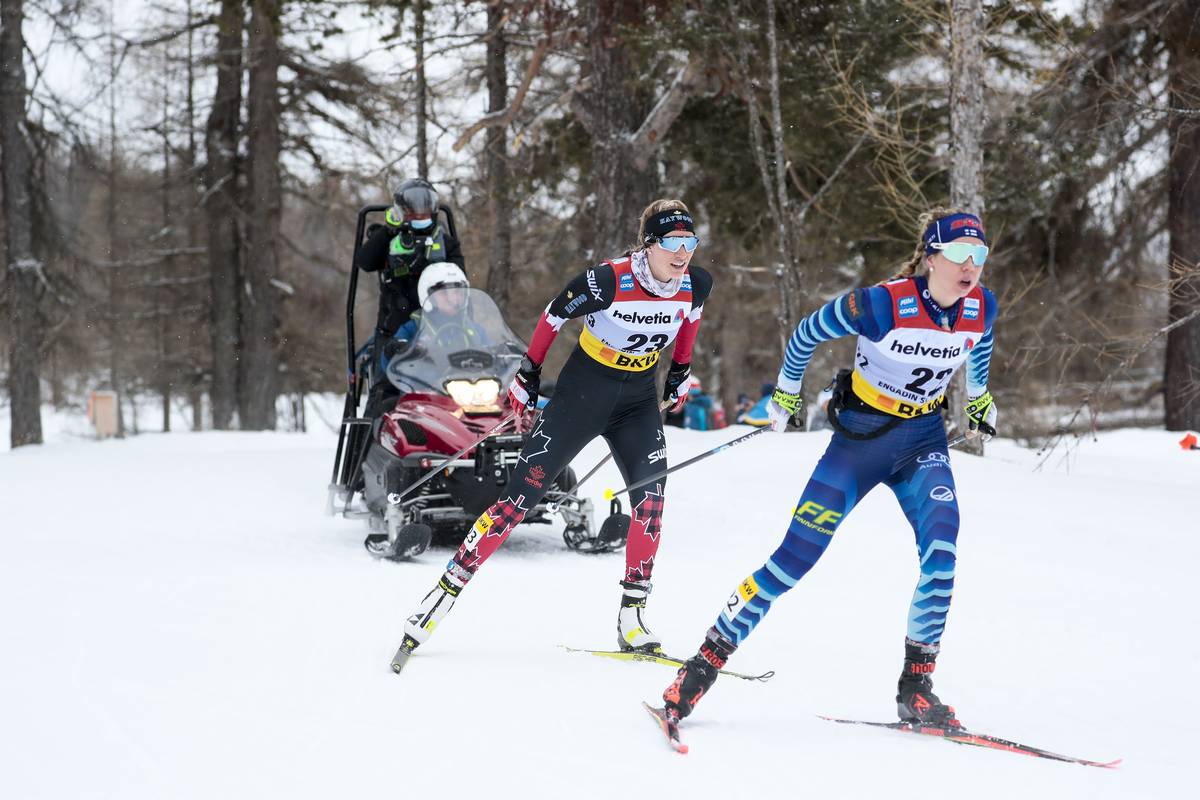
With the final race of the season concluded, it was time to award the globes. As previously noted, Diggins had already secured the World Cup Overall, the first time in history the title has been won by an American woman. She concluded the season with 1347 points, 268 ahead of Yulia Stupak (RUS) in second. Ebba Andersson (SWE) rounded out the podium in third with 1011 points.
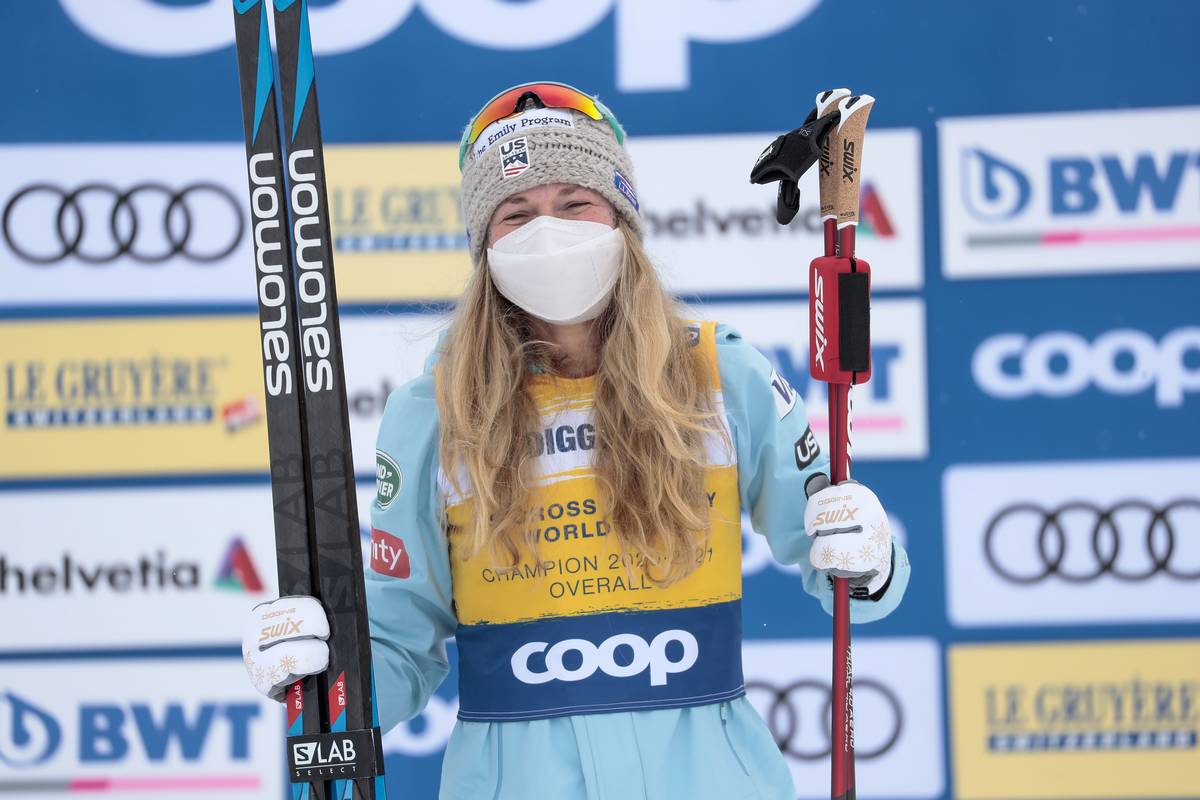
While the margins for the distance globe narrowed over the course of the day, the placings remained the same. Diggins topped the podium with 653 points, just 13 points ahead of Andersson in second with 640 points. Stupak finished the season third with 619 points, just 21 points behind Andersson.

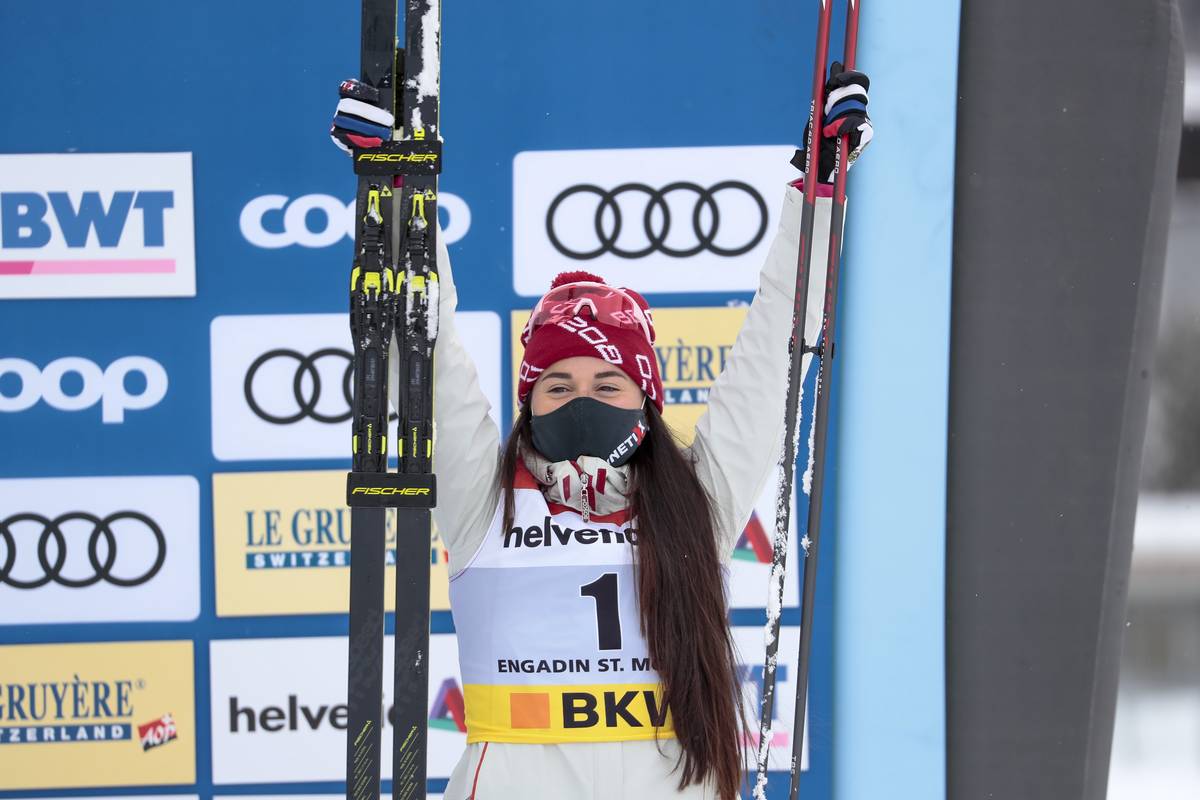
Since the last World Cup sprint event was at the start of February in Ulricehamn, Sweden, the standings have remained constant since then. Last season’s sprint globe winner, Linn Svahn of Sweden, took third place with 275 points.
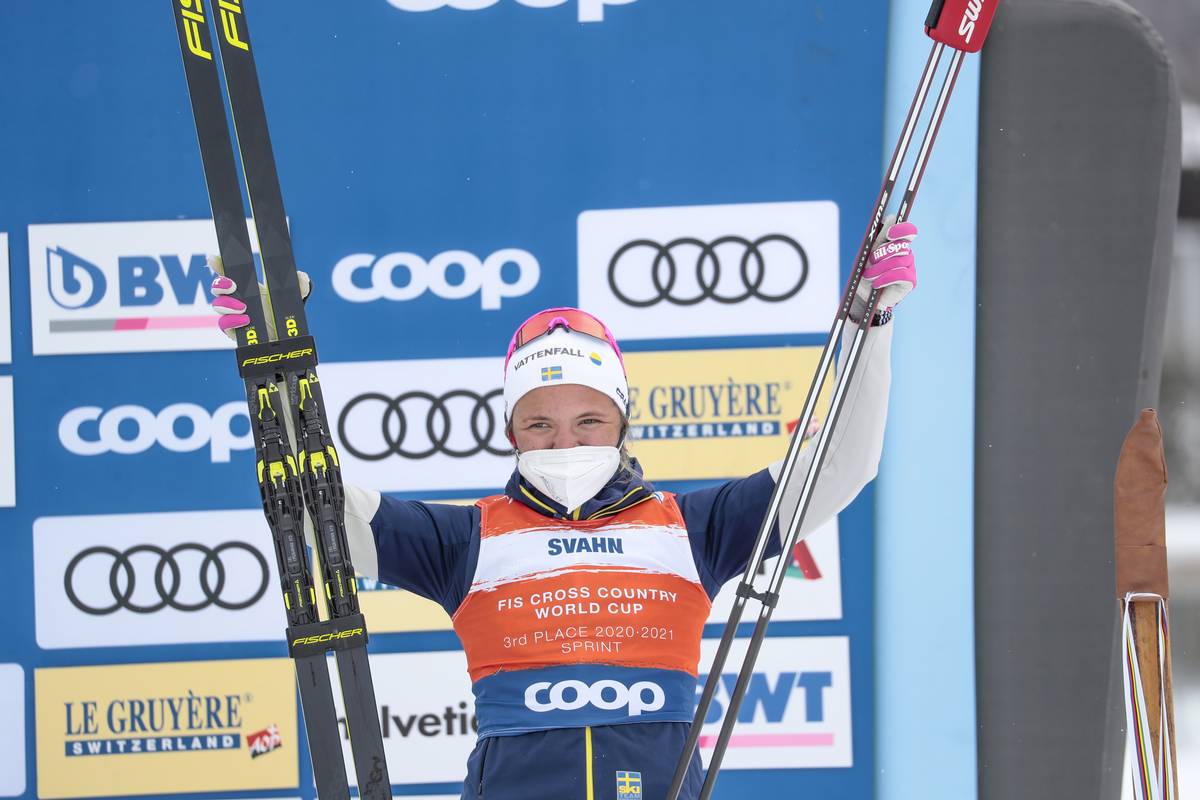
In second place was Nadine Fähndrich with 296 points and in first place with 402 points, Anamarija Lampic of Slovenia.
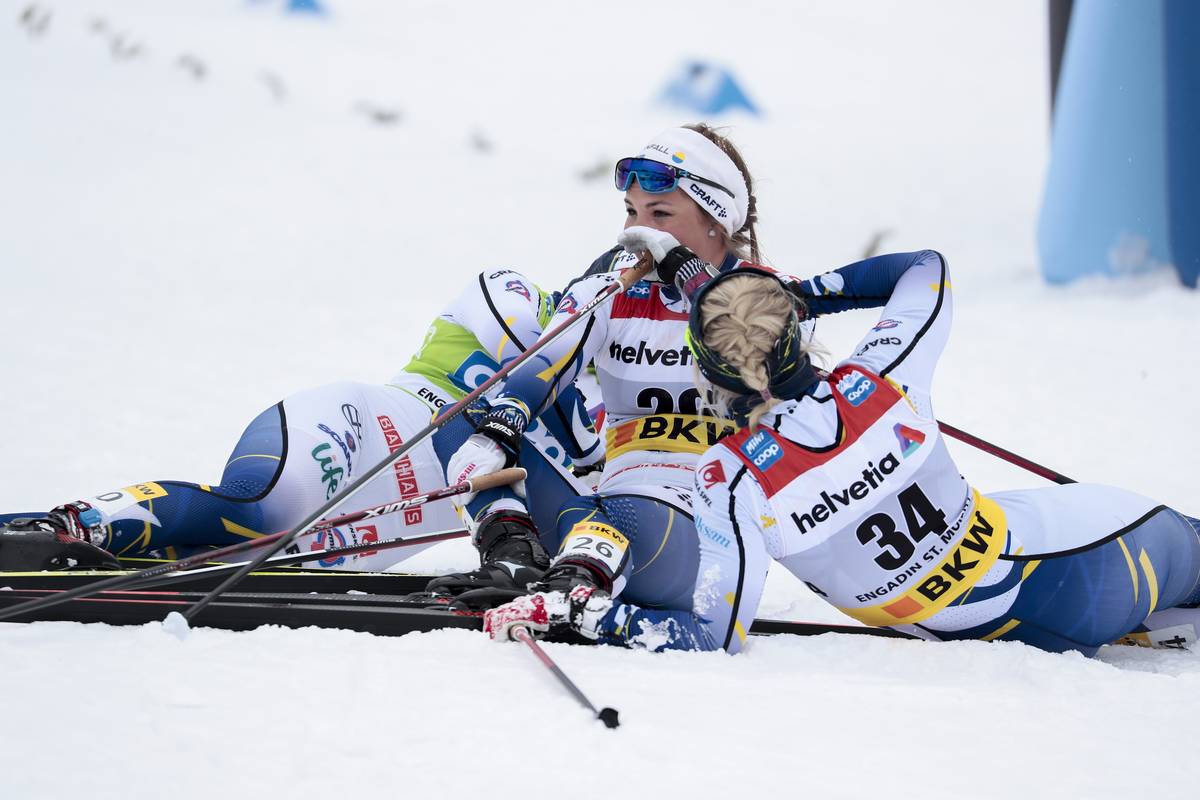
30 k Pursuit Results | Women’s Overall | Women’s Distance | Women’s Sprint
Ella Hall
Growing up in Washington’s Methow Valley, Ella was immersed in skiing and the ski community from a young age. From early days bundled in the pulk, to learning to ski as soon as she could walk, to junior racing, a few seasons of collegiate racing, and then to coaching, she has experienced the ski world in many forms. Now, as a recent graduate from Dartmouth College, she finds herself living in France splitting her time between teaching English at a university in Lyon, avidly following ski racing (and now writing about it!) and adventuring in the outdoors as often as possible.



